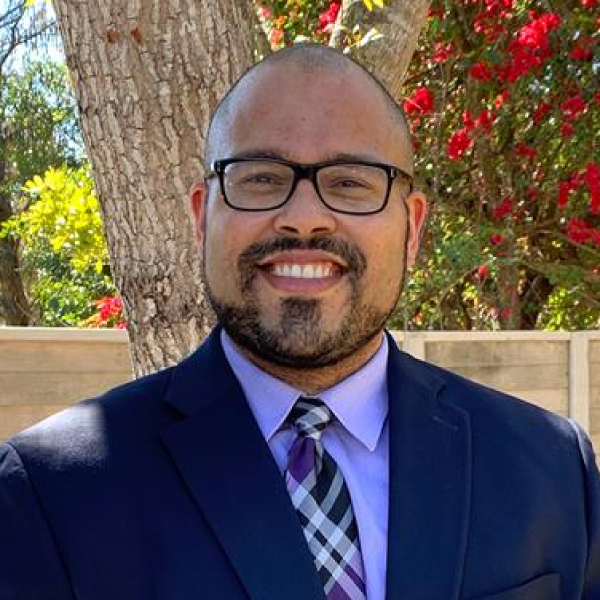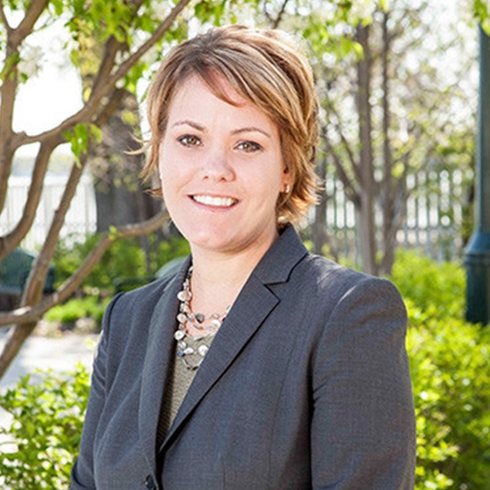Sometimes adults are not able to properly care for themselves and need another adult to assist them. These situations usually arise when a mentally incapacitated adult requires another person to make important financial or medical decisions on their behalf. However, a guardian or conservator may also help their ward with daily activities.
At Johnson/Turner Legal, we understand just how frustratingly opaque the guardianship and conservatorship processes in MN can be. Our team, consisting of a veteran Minnesota guardianship/conservatorship lawyer, two paralegals, and a life coach, can help you navigate your case.
To learn more or receive a consultation with our firm, contact us online or via phone at (320) 299-4249.
Guardians and conservators play a different role in the lives of their charges:
While guardians and wards play similar roles in the lives of their charges, guardianships and conservatorships obviously require different skillsets. For example, just because a person can act as a guardian doesn’t necessarily mean they have the financial education to manage a diversified investment portfolio like a conservator.
Individuals who need a ward may not need a conservator, and vice versa. A medically incapacitated adult may need a ward to take care of them and protect their rights but might lack the assets to warrant a conservator. Similarly, somebody perfectly capable of caring for themselves may not need a ward, but might require a conservator to help them manage complex financial decisions.
In Minnesota, a guardian ad litem represents a child’s best interests in legal cases such as adoption, custody/visitation, child support, divorce, or emancipation.
Not all legal guardians are guardians “ad litem.” The difference between a guardian and a guardian ad litem is that a guardian ad litem is a child’s legal advocate in a specific legal action, while a legal guardian is a child’s advocate in all legal matters until the child is emancipated.
If you wish to become a conservator or a guardian, you must file a guardianship or conservatorship appointment petition with the probate court that oversees the ward or protected person’s place of residence. You can learn more about the appointment process by following this link or speaking with a Minnesota guardianship/conservatorship attorney.
Once you file the appointment documents, the court will set a hearing date. You must have a third party serve the potential ward/protected person’s current caretaker with a notice of the case.
At the hearing, you will appear in court with the proposed ward or protected person and their caretaker. You will make your case to the court. This often involves showcasing documents such as a will and medical examination documents that back up your request to act as a guardian or conservator. The court will then decide whether to make you a guardian or conservator for the proposed ward/protected person.
Guardians and conservators have different requirements. Within two months of appointment, the conservator must file an inventory of the protected person’s assets. They must also file additional court orders before selling or utilizing those assets. It’s the conservator’s responsibility to pay for the support, maintenance, and education of their protected person.
On the other hand, the guardian must care for their ward’s wellbeing and possessions. The guardian must also file an annual report on the ward’s status, containing medical, physical, and social evaluations of the ward.
The duties and rights afforded to guardians and conservators are complex. At Johnson/Turner Legal, our Minnesota guardianship/conservatorship attorneys can help you understand your rights and responsibilities as a guardian or conservator more thoroughly.
We know that for many clients, legal fees are a concern. We use a flat-fee pricing model, so you know up-front how much our services will cost. At Johnson/Turner Legal, you pay for our services, not our time.
To learn more about how we help prospective guardians and conservators fight for their rights and protect their best interests in and out of court, contact us online or via phone at (320) 299-4249.

Attorney

Partner, Attorney

Partner, Attorney

Senior Client Service Representative

Chief Operating Officer

Client Engagement Specialist

Paralegal Assistant

Client Service Representative

Intake Specialist

Intake Specialist

Head of Intake Specialist Team

Senior Paralegal

Senior Paralegal

Partner, Attorney, Family Law Mediator

Senior Paralegal

Associate Accountant

Client Service Representative

Client Service Representative

Senior Paralegal

Operations Manager

Senior Paralegal

Client Engagement Specialist

Attorney

Senior Paralegal

Senior Paralegal

Engagement Support Specialist

Attorney

Director of Legal Practice Operations

Partner, Attorney

Partner, Attorney & Family Law Mediator

Client Engagement Specialist

Senior Paralegal

Attorney

Partner, Attorney

Attorney

Marketing Manager

Client Engagement Specialist

Coach

Attorney

Our employees are the key to the success of our clients, and ultimately of the firm. We strive to create a culture that instills a sense of belonging. We want to provide our employees with a safety net, which empowers them to take risks and make leaps, while knowing that others will support, assist and, if need be, catch them. Maintaining a firm culture of shared vision, open communication, positive work environment and friendships will foster a cohesive team of professionals working together to champion the successes of our clients, our community partners, and the firm.

We believe the legal industry needs to break free from its stale and uncreative practices in order to serve the needs of today’s clients. We seek to lead the way in revolutionizing the way consumers experience legal representation. We strive to reinvent all major facets of the delivery of legal services, including how we involve our clients in our representation through information sharing and communication, how we produce legal documents, manage cases, and price our services. We understand the challenges that come with innovation, and strive to support one another’s new ideas.

We strive to ensure that our attorneys and staff are fully versed in their practice areas to provide our clients the best advice and representation. The knowledge necessary to do so includes not only mastering the letter of the law, but also understanding trends in the interpretation and application of the law. We are life long learners who know there will never come a day when we have all the answers. We nurture and rely on our strong network of relationships within the firm and beyond. We study; we reflect; we converse; and we challenge one another. Our depth of knowledge sets us apart.

We all experiences life’s challenges, whether as part of our day-to-day routines or as a result of an event or transition in one’s life. Johnson/Turner Legal strives to help its clients and the legal profession rise through such challenges. Whether by pursuing fairness and justice, by solving problems or by bringing new perspective, Johnson/Turner Legal is dedicated to building trust and providing comfort.

We are a service organization, helping people through challenges and transitions in their lives. Our work must extend beyond our clients to champion the success of our colleagues, friends and the communities at large in which we live and work. We work to improve our communities through volunteerism and leadership.


Bloomington
8400 Normandale Lake Blvd., Suite #920 Bloomington, MN 55437
Open hours Mon-Fri 8am – 5pm
Map & Directions
Burnsville
1509 Southcross Dr W, Suite 204
Burnsville, MN 55306
Open hours Mon-Fri 8am – 5pm

Duluth
230 West Superior Street, Suite #400
Duluth, MN 55802
Open hours Mon-Fri 8am – 5pm


Eden Prairie
6385 Old Shady Oak Rd., Suite #250
Eden Prairie, MN 55344
Open hours Mon-Fri 8am – 5pm
Map & Directions

Forest Lake
56 E. Broadway Ave, Suite #206
Forest Lake, MN 55025
Open hours Mon-Fri 8am – 5pm


Maple Grove
11670 Fountains Drive, Suite #200
Maple Grove, MN 55369
Open hours Mon-Fri 8am – 5pm
Map & Directions

Minneapolis
100 S 5th St., Suite #1900
Minneapolis, MN 55402
Open hours Mon-Fri 8am – 5pm
Map & Directions

Rochester
975 34th Avenue NW, Suite #350
Rochester, MN 55901
Open hours Mon-Fri 8am – 5pm

Roseville
2355 Highway 36 West, Suite #400
Roseville, MN 55113
Open hours Mon-Fri 8am – 5pm

St. Paul
445 Minnesota Street, Suite #1500
St. Paul, MN 55101
Open hours Mon-Fri 8am – 5pm

Wayzata
1155 East Wayzata Blvd, Suite #10
Wayzata, MN 55391
Open hours Mon-Fri 8am – 5pm

Woodbury
7377 Currell Blvd., Suite #101
Woodbury, MN 55125
Open hours Mon-Fri 8am – 5pm
The information on this website is for general information purposes only. Nothing on this site should be taken as legal advice for any individual case or situation. This information is not intended to create, and receipt or viewing does not constitute, an attorney-client relationship.
© 2023 All Rights Reserved.